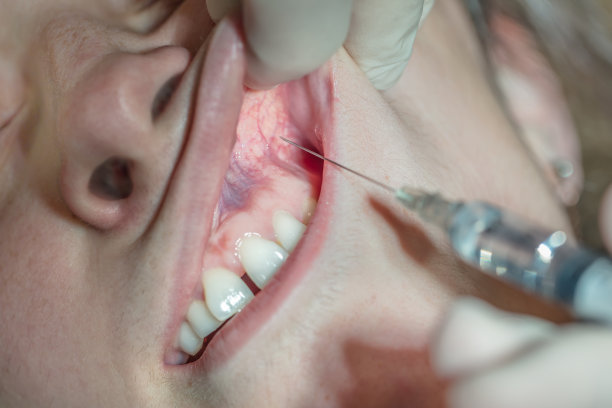Summary: Dental implantation is a transformative procedure for individuals seeking to restore function and aesthetics after tooth loss. However, proper guidelines and precautions are crucial before undergoing this treatment to ensure optimal results and safety. This article explores essential considerations, such as evaluating candidacy for dental implantation, understanding the procedural framework, recognizing post-operative care requirements, and exploring costs and insurance options. By adhering to these guidelines, patients can enhance their chances of successful dental implantation, ensure their safety, and achieve a satisfying outcome in their dental journey.
1. Evaluating Candidacy for Dental Implants

Before undergoing dental implantation, it is crucial to assess whether you are a suitable candidate for this procedure. Several key factors are taken into account during this evaluation process, including the condition of your jawbone, overall oral health, and medical history. A dentist will conduct a comprehensive dental examination and imaging tests, such as X-rays or CT scans, to determine if there is enough bone density to support the implant.
Moreover, candidates should ideally maintain good oral hygiene, as active gum disease can complicate the implant procedure. Discussing any health conditions, such as diabetes or osteoporosis, is essential, as these may impact healing time and implant success. Individuals who smoke or consume excessive alcohol may need to quit or reduce these habits to improve their candidacy.
Ultimately, working closely with a qualified dental professional is essential for achieving an accurate assessment. This collaborative approach ensures that all health variables are considered, leading to an informed decision regarding whether dental implants are the right solution for you.
2. Understanding the Implant Procedure
Having a clear understanding of the dental implant procedure can alleviate any anxieties and help you prepare adequately. The process typically involves multiple stages, beginning with the initial consultation, followed by the surgical placement of titanium implants into the jawbone. During surgery, anesthesia will be administered to ensure that the procedure is comfortable and pain-free.
After implant placement, there exists a healing period during which the bone integrates with the implant, often referred to as osseointegration. This phase is crucial for the success of the implant, as the stability of the implant relies on this biological process. Depending on individual healing rates, this could take several weeks to months.
Once osseointegration is complete, the final abutment and prosthetic crown are placed. Your dentist will provide guidance throughout the process, including what to expect, potential risks, and care instructions. A clear understanding of each phase will enhance your comfort and compliance with pre-and post-operative care.
3. Recognizing Post-Operative Care Needs
Post-operative care is critical to the success of dental implants and involves several key practices. Following the procedure, patients may experience swelling or discomfort, which can be managed with prescribed pain relief and ice packs. Adhering to your dentists instructions for medication and care is vital during this recovery phase.
Maintaining proper oral hygiene is paramount; patients should be diligent about cleaning the implant site while avoiding disruption to the healing process. Gentle rinsing and the use of prescribed mouthwash can promote healing and minimize the risk of infection. Regular follow-up appointments allow the dentist to monitor the healing process and make any necessary adjustments.
Additionally, attending dental check-ups and engaging in professional cleanings is essential for ongoing implant health. By establishing a routine that incorporates these practices, patients can support their implants’ longevity and overall oral health.
4. Exploring Costs and Insurance Options
The financial aspect of dental implants is an essential consideration for many individuals. Costs can vary widely based on factors such as location, the complexity of the case, and the materials used. Patients should inquire about the total cost and any additional fees associated with the procedure, such as consultation and follow-up visits.
Insurance coverage for dental implants varies among insurance providers; thus, it is advisable to contact your insurer for specific details about coverage options, deductibles, and limitations. Some plans may offer partial reimbursement for the procedure, while others may not cover it at all. Understanding your plans stipulations allows for better financial planning.
Furthermore, some dental practices offer financing options or payment plans to help manage costs. Discussing this with your dental provider can provide additional flexibility and ease the financial burden associated with obtaining dental implants.
Summary:
In conclusion, understanding the essential guidelines and precautions associated with dental implantation can significantly influence its success. From evaluating candidacy to recognizing costs, each aspect plays an integral role in achieving optimal results. By engaging in open communication with your dental provider and following recommended practices, you can contribute positively to the outcome of your dental implant journey.
This article is compiled by Vickong Dental and the content is for reference only.
Vickong Dental
Vickong Dental is a large medical group established in Hong Kong in 2008 by professors from well-known medical universities in Guangdong and Hong Kong, as well as medical doctors from key national '985' universities (including Master's supervisors and senior professors). The chain of branches brings together expert dentists with PhDs and Master's degrees from Hong Kong and Mainland China, committed to providing high-quality dental treatment.
"Vickong Dental Practices the University Motto of 'Healing and Serving Society,' with a Stable Operation for Sixteen Years. It Has Been honored with Hong Kong Enterprise Leaders's Choice,' and is a Global Trusted Implant Center for the Nobel Implant System. Recommended by Hong Kong Metro Broadcast and Guangdong Television, it Serves Customers from Over Thirty Countries and Regions, Gaining the Trust and Favor of Citizens from the Guangdong-Hong Kong-Macau Greater Bay Area and Surrounding Cities.

Thousands of customers' unanimous praise
The most recognized and highly recommended dental service by customers in the Guangdong-Hong Kong-Macau Greater Bay Area
We Ensure You Receive Detailed Care and Attention Here
Hong Kong standards, Shenzhen prices, Your Trusted English-speaking dentists

Vickong Dental Medical-Grade Instrument Disinfection Process
Vickong Dental Medical-Grade Instrument Disinfection Process

Vickong Dental Chain: A Warm and Comfortable Environment for Treatment






Appointment Hours

Q&A
Why choose Vickong Dental?
Vickong Dental practices the university motto 「Medicine to Benefit Society」, with each branch bringing together highly qualified dentists with doctoral and master’s degrees from Hong Kong and the Mainland, and has maintained seventeen years of steady operation。Recipient of 「2024 Hong Kong Enterprise Leaders Brand」, 「2025 Hong Kong Enterprise Leaders Brand」, a Nobel Biocare Global Trusted Implant Center, and a brand recommended by Metro Radio Hong Kong and Guangdong TV。
To date, we have served customers from more than thirty countries and regions,earning exceptionally high word-of-mouth recognition and trusted recommendations from residents across the Guangdong-Hong Kong-Macao Greater Bay Area and surrounding cities
We have eight major branches in Zhuhai、Shenzhen,and a consultation and service assurance center in Hong Kong,so you can book a free consultation at any time for any questions,which is very reassuring.
If I do not accept the quotation after the CT scan, will I be charged??
No! As long as the actual treatment has not started, you will not be charged any fees.
Will there be any additional charges during the treatment process?
No, there won’t be any additional charges. Before treatment begins, we will clearly explain the treatment plan and its corresponding fees. Only after the patient agrees and signs the consent form will we proceed with the dental service.
Can I pay in Hong Kong dollars?
Yes. Vickong Dental accepts payment in Hong Kong dollars. The amount will be converted based on the exchange rate of the day, and the applicable rate will be clearly communicated to you in advance.
Can I reschedule my appointment at any time?
Yes. Please contact us via **WeChat** or **WhatsApp** as early as possible, providing your original appointment time and details, along with your preferred new date and time slot for rescheduling.













